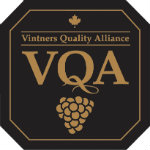Pouring A New Glass for Farmers’ Markets in Ontario and British Columbia
Posted: July 23, 2014
Categories: GoodFoodBites / News from Sustain Ontario

This year opened the cellar door to increased market access for locally produced alcoholic beverages in Canada. Both Ontario and British Columbia made changes to their provincial alcohol licencing earlier this year to allow for the sale of locally produced alcoholic beverages at local farmers’ markets. While restrictions still apply, patrons are now able to purchase a variety of wines and spirits without having to travel beyond their neighbourhood farmers’ market. The two provincial regulations are outlined below.
Ontario (Updated June 24, 2014)
On May 1, 2014 the Government of Ontario began a two-year pilot project permitting the sale of Ontario Vintners’ Quality Alliance (VQA) wines at Ontario farmers’ markets. The pilot program is being administered by the Alcohol and Gaming Commission of Ontario (AGCO). According to the AGCO Information Bulletin No. 034, a winery farmers’ market booth will act as an “occasional extension” of an existing on-site winery retail store. Expanding on existing on-site retail criteria, the AGCO recently clarified the application process; the sampling, selling and storage regulations; and roles and responsibilities of vendors. Notably,
- Wineries will need to apply with the AGCO for authorization and then independently contact the desired farmers’ market to request a tabling space. As such, the ACGO regulates the winery and not the farmers’ market.
- Only VQA wine may be sold at farmers’ markets at this time. This may extend to other alcoholic beverages after the two year pilot.
- Wine may only be sold during the market’s hours of operation. Sampling is permitted but must be confined to the area surrounding the winery table.
- Each authorized winery will be able to sell wine up to three times a week at a particular farmers’ market. For each occasion, wine must be transported daily between the winery’s on-site retail store and farmers’ market. Any unsold wine must be returned to the winery’s on-site retail store at the end of each day.
- To ensure responsible sale and service of VQA wine at farmers’ markets, all staff involved in the sale of VQA wine at a farmers’ market must be certified by Smart Serve®.
For more information, consider reading the full details online at the AGCO’s website or the Question and Answers document provided for Sustain Ontario by the Greenbelt Farmers’ Market Network. Finally, for a complete look at the AGCO’s plans for Ontario’s alcohol industry consider reading the recently published Regulatory Modernization of Ontario’s Alcohol Industry Findings Report (March, 2014).
These new regulations were discussed by the Municipal Regional Food Policy Network in May. If you are interested in reading the meeting minutes, please contact Kat Rendek at municipalpolicy@sustainontario.ca.
British Columbia
On June 21, 2014 the British Columbia Ministry of Justice formally announced that locally produced wine, beer, cider, and spirits would be permitted for sale at farmers’ markets. This change comes in response to one of Parliamentary Secretary John Yap’s 73 industry recommendations, recently published as part of the B.C. Liquor Policy Review. While the province plans to completely re-write of the Liquor Control and Licensing Act in 2015, they have opted to kick-start the industry changes using a graduated phase-in process.
Echoing the Ontario regulation, manufacturers are now permitted to sample and sell a selection of alcoholic beverages from any designated “temporary off-site retail location” including farmers’ markets. As clarified in a recent press release by the Ministry of Justice,
- Liquor manufacturers must apply directly to the farmers’ markets they wish to sell their products, and the market gets to decide which vintners, distillers and brewers are accepted.
- Unlike with the new Ontario regulations, decisions regarding the number of retailers, the selection of alcohol, and access to on-site storage is at the discretion of individual markets.
- Liability remains with the vendor, and all liquor vendors must have Serving it Right® certification.
With the summer farmers’ markets still in full swing, it remains to be seen whether or not the Ontario and British Columbia alcohol licensing changes quench the thirst of local producers and consumers. Both provinces will be conducting a full program review in late 2015 – early 2016.
Tell us what you think about this new pilot project in the comments below.
This post’s featured image is of Frogpond Farm Organic Wine’s table at the Evergreen Brick Works Farmers’ Market. The original picture can be seen on their Facebook page. Evergreen is a member of Sustain Ontario.
